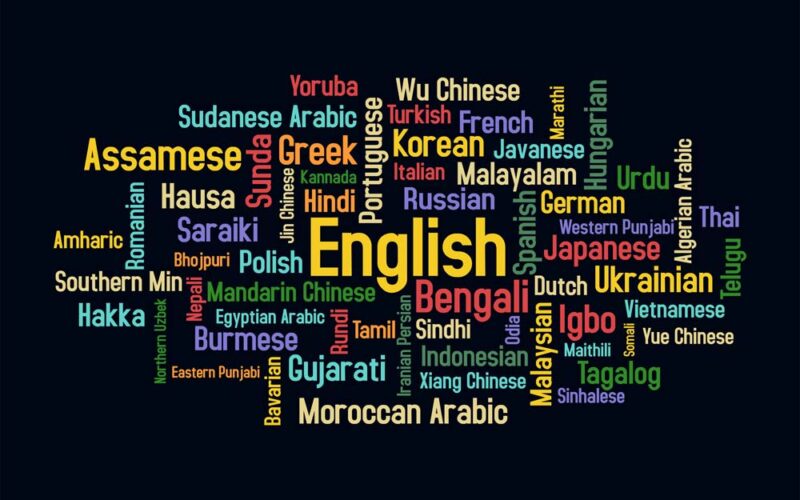Introduction: relation between language and personality
Many bilingual or multilingual people, those who speak two or more languages, have experienced a weird phenomenon: feeling like a different person when they speak different languages. This “phenomenon” has two possible explanations as hypotheses, which are equal to schizophrenic symptoms (having a split personality) and cultural accommodation hypotheses (acting differently through languages without changing personality). It is not just about personality, but sometimes, you act differently, have a different tone of voice depending on the language you talk in, or do a different gesture in a conversation. Furthermore, this “weird feeling” happens not only when you speak foreign languages but also when you speak a dialect (language that is spoken in a specific area or region) (Hug-a-Group, 2020).
Relationship between culture and language
(Hug-a-Group, 2020) states that some studies are saying that bilingual and bicultural people tend to set their personality along with the culture of the language they are speaking. It is important to be bicultural because if you understand the two sides of the culture when you speak a different language, you switch your behavior along with this culture. For example, in English, you feel more open, outgoing, and confident. Otherwise, in Russian, you might feel guarded, quiet, and uncomfortable (Prentis, 2017).
Moreover, there is research about writing a description of your personality for 15 minutes. A Mexican-American took this test, and when answering in Spanish, he/she talked about relationships, family, and hobbies. However, in English, he/she spoke about success, colleagues, and their routines. We can say that each language has its cultural value, and we see ourselves through it when we are speaking that language (Prentis, 2017).
How does being multilingual affect our communication skills?
Psychologists at the University of Chicago discovered that children who are exposed to an environment where there are two or more languages spoken tend to interpret better the others’ intentions than children who are only in a monolingual environment. Indeed, the ability to understand others’ perspectives is important to becoming an effective communicator. Furthermore, the most interesting finding might be that the children do not need to be bilingual as far as they listen to another language besides their native tongue to be a better natural communicator. It is because the children exposed to multilingual ambience have more chances to social practice by observing a person speaking how and what to the other, and they can see the social patterns and the loyalty built through languages (Ingmire, 2015).
Proverbs about learning a new language
Learning a new language can expand your mind, enrich your life, and allow you to live your life fully as much as you learn new traditions because each language has its special culture, tradition, and worldview (Piller, 2014). Here are some proverbs about learning new languages in other countries.
German – “The limits of my language mean the limits of my world” (Piller, 2014).
French – “The knowledge of languages is the first gateway to wisdom” (Piller, 2014).
Chinese – “Learning a language is an extra window to observe the world” (Piller, 2014).
Persian – “A new language is a new life” (Piller, 2014).
Turkish – “One language, one person; two languages, two people” (Piller, 2014).
Czechoslovakian – “The more languages you know, the more times you are human” (Piller, 2014).
Conclusion
All languages have so much about their own culture or traditions that we see ourselves through it when we talk in other languages. However, you need to be bicultural to note your differences, and understanding other languages makes you wiser, more human, and a better communicator, providing yourself a different point of view of the world.
References
Hug-a-Group (2020). Do you feel like a different person when you speak a foreign language? Here is why! [online] Medium. Available at: https://hugagroup.medium.com/do-you-feel-like-a-different-person-when-you-speak-a-foreign-language-here-is-why-61046ca3d4d3 [Accessed 14 Apr. 2022].
Ingmire, J. (2015). Children exposed to multiple languages may be better natural communicators. [online] University of Chicago News. Available at: https://news.uchicago.edu/story/children-exposed-multiple-languages-may-be-better-natural-communicators [Accessed 14 Apr. 2022].
Piller, I. (2014). On learning languages and the gaining of wisdom. [online] Language on the Move. Available at: https://www.languageonthemove.com/on-learning-languages-and-the-gaining-of-wisdom/?fbclid=IwAR11Yj8Lix-WTvFbMPVw1Lr6i9TuB0yCLG3NrtGKn-pAgUyBEi58JVM7jgY [Accessed 14 Apr. 2022].
Prentis, N. (2017). Speaking a foreign language can change your personality. [online] Quartz. Available at: https://qz.com/925630/feel-more-fun-in-french-your-personality-can-change-depending-on-the-language-you-speak/ [Accessed 14 Apr. 2022].
